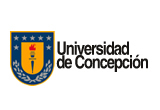Undergraduate Thesis of Felipe Vargas
 | Career | Mathematical Civil Engineering, Universidad de Concepción |
|---|---|---|
| Enrollment Year | 2007 | |
| Senior Year | 2014 | |
| Thesis Title | A posteriori estimation of the error and adaptive schemes for the finite element solution of electroencephalography problems | |
Thesis Summary:In this paper we will study the problem of reconstructing the electromagnetic activity that occurs in the brain (this is done, in practice, through a non-invasive technique called electroencephalography). In mathematical terms, this reduces to an inverse problem, in which it is interesting to determine the source that has produced the electric field, from measurements of the electrical potential at the border of the domain. The algorithm for solving this problem requires solving the corresponding direct problem, that is, calculating the electric potential from a given source. To solve this problem, there are two well-known techniques: the Direct Method and the Subtraction Method, the latter being the one studied in this work. For physiological reasons, it is known that the sources that generate electrical activity are located in regions of the brain very close to jumps of electrical conductivity, which can lead to large numerical errors if the problem is solved in uniform meshes. This is why an error estimator is introduced a posteriori for the direct problem, and its efficiency and reliability are demonstrated. Then, this estimator is used to guide an adaptive process for the resolution of the direct problem, and thus, for the resolution of the inverse problem. | ||
| Thesis Director(s) | Jessika Camaño, Rodolfo Rodríguez | |
| Thesis Project Approval Date | 2013, March 04 | |
| Thesis Defense Date | 2014, January 03 | |
| Professional Monitoring | Student enters the program of PhD in Applied Sciences with mention in Mathematical Engineering, Universidad de Concepción. | |
| PDF Tesis | Download Thesis PDF  | |
| (No publications) | ||
<< Back to list of Undergraduate Thesis.

